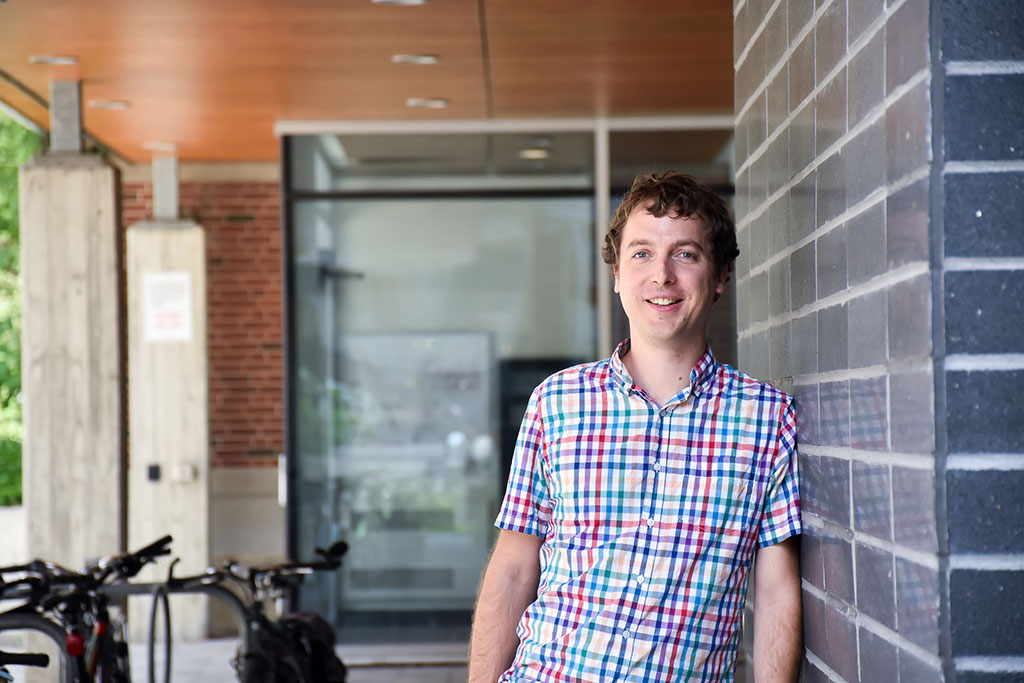ZeMing Gong, Austin Wang, Xiaoliang Huo, Joakim Bruslund Haurum, Scott Lowe,
Graham Taylor, and Angel Chang.
CLIBD: Bridging vision and genomics for biodiversity monitoring at
scale.
In International Conference on Learning Representations (ICLR),
2025.
To appear. Early version appeared at Computer Vision and Pattern
Recognition (CVPR) Workshop on Fine-Grained Visual Categorization.
[ bib |
arXiv |
GitHub |
http ]
Laura Pollock, Justin Kitzies, Sara Beery, Kaitlyn Gaynor, Marta Jarzyna,
Oisin Mac Aodha, Bernd Meyer, David Rolnick, Graham Taylor, Devis Tuia, and
Tanya Berger-Wolf.
Harnessing artificial intelligence to fill global shortfalls in
biodiversity.
Nature Reviews, 2025.
[ bib |
DOI ]
Tiancheng Gao and Graham Taylor.
BarcodeMamba: State space models for biodiversity analysis.
In Neural Information Processing Systems (NeurIPS) Workshop on
Foundation Models for Science, 2024.
[ bib |
arXiv |
GitHub ]
Zahra Gharaee, Scott Lowe, ZeMing Gong, Pablo Millan Arias, Nicholas
Pellegrino, Austin Wang, Joakim Bruslund Haurum, Iuliia Zarubiieva, Lila
Kari, Dirk Steinke, Graham Taylor, Paul Fieguth, and Angel Chang.
BIOSCAN-5M: A multimodal dataset for insect biodiversity.
In Neural Information Processing Systems (NeurIPS) Datasets and
Benchmarks Track, 2024.
[ bib |
arXiv |
GitHub ]
Joakim Bruslund Haurum, Sergio Escalera, Graham Taylor, and Thomas Moeslund.
Agglomerative token clustering.
In European Conference on Computer Vision (ECCV), 2024.
[ bib |
arXiv |
GitHub |
http ]
Pablo Millan Arias, Niousha Sadjadi, Monireh Safari, ZeMing Gong, Austin Wang,
Scott Lowe, Joakim Bruslund Haurum, Iuliia Zarubiieva, Dirk Steinke, Lila
Kari, Angel Chang, and Graham Taylor.
BarcodeBERT: Transformers for biodiversity analysis.
In Neural Information Processing Systems (NeurIPS) Workshop on
Self-Supervised Learning: Theory and Practice, 2023.
[ bib |
arXiv |
GitHub ]
Zahra Gharaee, ZeMing Gong, Nicholas Pellegrino, Iuliia Zarubiieva,
Joakim Bruslund Haurum, Scott Lowe, Jaclyn McKeown, Chris Ho, Joschka McLeod,
Yi-Yun Wei, Jireh Agda, Sujeevan Ratnasingham, Dirk Steinke, Angel Chang,
Graham Taylor, and Paul Fieguth.
A step towards worldwide biodiversity assessment: The BIOSCAN-1M
insect dataset.
In Advances in Neural Information Processing Systems (NeurIPS)
Datasets and Benchmarks Track, 2023.
[ bib |
arXiv |
GitHub ]
Michal Lisicki, Mihai Nica, and Graham Taylor.
Bandit-driven batch selection for robust learning under label noise.
In Neural Information Processing Systems (NeurIPS) Workshop on
Optimization for Machine Learning, 2023.
Also presented at the NeurIPS Workshop on Advancing Neural Network
Training (WANT).
[ bib |
arXiv ]
Joakim Bruslund Haurum, Sergio Escalera, Graham Taylor, and Thomas Moeslund.
Which tokens to use? investigating token reduction in vision
transformers.
In International Conference on Computer Vision (ICCV) Workshop
on New Ideas in Vision Transformers, 2023.
[ bib |
arXiv |
GitHub |
http ]
Kevin Kasa and Graham Taylor.
Empirically validating conformal prediction on modern vision
architectures under distribution shift and long-tailed data.
In International Conference on Machine Learning (ICML) Workshop
on Structured Probabilistic Inference & Generative Modeling, 2023.
[ bib |
arXiv ]
Mateusz Jurewicz, Graham Taylor, and Leon Derczynski.
The Catalog Problem: Clustering and Ordering Variable-Sized Sets.
In International Conference on Machine Learning (ICML), 2023.
[ bib |
DOI |
.pdf ]
Cong Wei, Brendan Duke, Ruowei Jiang, Parham Aarabi, Graham Taylor, and Florian
Shkurti.
Sparsifiner: Learning Sparse Instance-Dependent Attention for
Efficient Vision Transformers.
In Conference on Computer Vision and Pattern Recognition
(CVPR), 2023.
[ bib |
arXiv |
GitHub |
http ]
Angus Galloway, Anna Golubeva, Mahmoud Salem, Mihai Nica, Yani Ioannou, and
Graham Taylor.
Bounding generalization error with input compression: An empirical
study with infinite-width networks.
Transactions on Machine Learning Research (TMLR), 2022.
[ bib |
arXiv ]
Rylee Thompson, Boris Knyazev, Elahe Ghalebi, Jungtaek Kim, and Graham Taylor.
On evaluation metrics for graph generative models.
In International Conference on Learning Representations (ICLR),
2022.
[ bib |
arXiv |
GitHub ]
